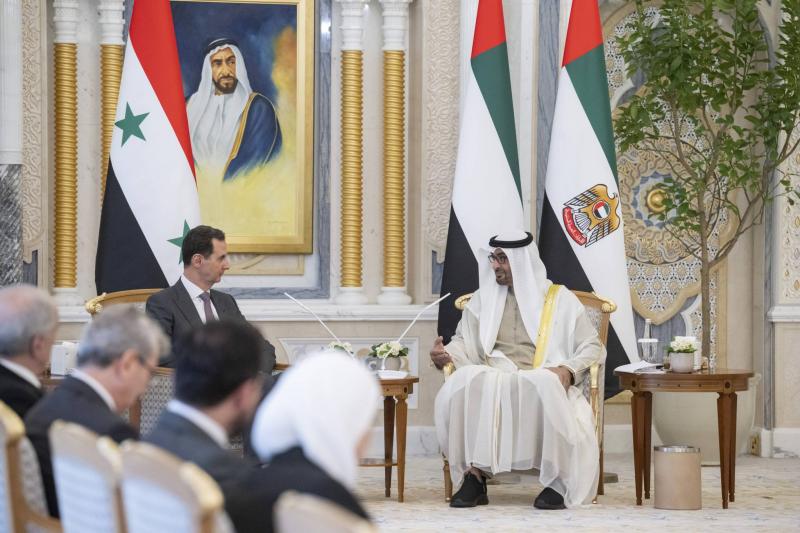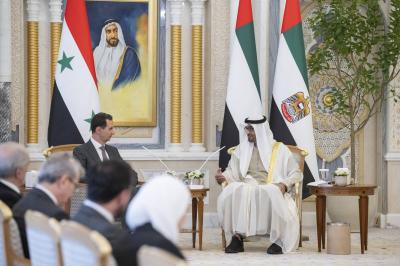The Middle East is buzzing with significant political and diplomatic developments following the Iranian-Saudi agreement brokered by China. The region appears to be undergoing a major reshuffling that could lead to new alliances and relationships being turned upside down. Commenting on the regional scene, a high-ranking Western diplomatic source in Beirut noted that the coming days will witness many unexpected surprises concerning the relationships between powers and nations in the Middle East, including further rapprochement between Saudi Arabia and Iran, as well as with the powers and nations aligned with them.
Amid these developments, various reports are emerging about efforts to reintegrate Syria into the Arab League, with attempts to achieve this at the upcoming Arab summit to be held in Riyadh 15 days after the Eid al-Fitr holiday. No sooner had Syrian President Bashar al-Assad left the UAE than information leaked indicating that preparations to reopen the Saudi embassy in Damascus would begin after Eid al-Fitr, along with other reports regarding a possible visit by the Saudi Foreign Minister to Damascus or an invitation for the Syrian Foreign Minister to Riyadh. This indicates an escalation in communication from security matters to political and diplomatic ones, while some information from within Damascus indicates that preparations are underway at the Saudi consulate in Syria for its reopening.
In this context, after the visit of Syrian intelligence chief Hosam Louka to Riyadh a few months ago to meet with Saudi intelligence chief Khalid Al-Humaidan, last week witnessed a visit by a high-ranking Syrian official from the Assad family to the Kingdom. Some information suggests that it was Maher al-Assad, the president's brother. According to the details as reported by the newspaper "Al-Jarida," the visit was purely security-related and concerned with the need for Damascus to combat drug trafficking and production, in addition to monitoring the border control issue, especially since all these matters fall under the jurisdiction of the "Fourth Division" of the Syrian army, which Maher commands, and which controls the territory, particularly the border crossings and key areas.
According to sources, this visit and the commitment to its conditions are what will pave the way for political relations. In a broader context, it is clear that the aftermath of the Saudi-Iranian agreement, and its initial effects on the Yemeni situation through the prisoner exchange agreement, will inevitably impact the situations in Syria and Lebanon, which somewhat share similar imposed political propositions, whether it is the Kuwaiti initiative regarding Lebanon or the Saudi conditions paper that was handed to the Syrian regime.
Hence, there is a connection between these files, particularly after Assad’s visit to Oman, where sources following the matter suggest that he sought to position himself as ready to play a crucial role concerning the Yemen crisis, requesting concessions from the Houthis and Iran. However, the need for this may have dissipated with the Saudi-Iranian agreement. Here, Assad might attempt to offer his "services" in Lebanon, though it remains uncertain how this will manifest regarding the candidacy of Sleiman Frangieh.
Within the political and diplomatic movement occurring in the region, Beirut has witnessed numerous rounds of visits by Arab and Gulf diplomats specifically over the past two weeks. According to reports, a envoy from Oman visited Beirut and met with various officials, especially from Hezbollah. The discussions focused on the necessity for the party to withdraw from Yemen and refrain from interference, as well as addressing the issue of repositioning the party’s forces in Syria in exchange for withdrawals from several areas.
Hezbollah had previously undertaken a repositioning during heightened tensions along the southern borders last summer pertaining to the border delimitation issue prior to its resolution, where the party moved many of its members from Syria to Lebanon to be prepared for potential combat. Additionally, a Qatari delegation visited Lebanon, headed by a senior diplomat from the Qatari Deputy Foreign Minister's office, Mohamed bin Abdulaziz Al-Khalifi, and met with multiple officials and parliamentary blocs to discuss how to work towards resolving the Lebanese crisis and providing necessary assistance to end the presidential vacuum and gauge the readiness to take the required steps for that.
The meetings included several deputies representing various parliamentary blocs. According to reports, this visit was exploratory and preparatory for a potential official and public visit by a Qatari delegation to Beirut in coordination with Saudi Arabia, especially as Riyadh and Doha share a vision for the Lebanese file and have both participated in the five-party Paris meeting.




